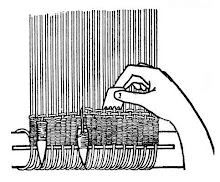What is it that lead you to read only the "authorized" version of the Bible?
This question was emailed to me in response to my Blog, and I would like to post my reply to it, in case other people are wondering the same thing:Thanks for the question. I think the first thing that led to my change of mind was that I just plain read my Bible more and more (and I mean my New American Standard Bible). Though I do not consider it completely trustworthy, the NAS in particular still has a lot to offer the Bible student - being a "word for word" translation. As I read my NASB, I came across various footnotes - which I did not think much of at the time - but I credit the NAS with at least putting the footnotes in large print so that the reader has a chance to notice and read them.Then my church (which was a "Charismatic" church at the time) started to teach that salvation could be lost. I was discussing the issue with a conservative friend who was, as I called it at the time, "KJV-Only". Nevertheless, he was reading to me from my NASB in James 2. He pointed out that the remark: "You believe that there is one God, the demons also believe and tremble" (or something like that in the NASB) should actually be included in the quotation of the man who says, "You have faith and I have works..." Because the closing quotation mark actually comes before this remark, it sounds like James is directing those words at his readers - whereas James was actually continuing his quote of the proverbial vain man. He answers this man, "But wilt thou know, O vain man, that faith without works is dead?..." (Quoted from the Authorized Version)It was at this point that I realized using a different translation could actually "colour" what you believe, and that it actually might be an important issue. Later, I came across "KJV-only books" (while I was looking for books on eternal security). I did not want to read these books and adopt what I thought was the ridiculous "KJV-Only Position", but I also wanted to take a second look at "the differences". I knew they existed, but I had been assuming they were too few and insignificant to matter.I finally picked up some books (sort of holding my nose as I opened them) and simply looked for instances where there were significant discrepancies. And I was careful to have my own NASB and my own "KJV" to see the differences for myself. It was then that I found myself face to face with the fact that there were several serious discrepancies that simply could not be honestly ignored.One example is 1 John 4:3. The difference between the Authorized ("King James") Version and the NASB is that the Authorized Version says "...that Jesus Christ is come in the flesh..." whereas the NASB says "...Jesus..." I started to recall reading the last twelve verses of Mark in a footnote in my NASB (although many NASB editions keep the verses in the text and simply question their authenticity).With fear and trembling I sought God's face on the issue, and soon found myself reading the "King James" Bible - in all its perfect, intact, entirety, for the first time, and absolutely loving it. As Jesus said, "If the truth shall make you free, ye shall be free indeed." That is truly my story - not one of being "tied down" to one version, but rather being free from rummaging through the confusing plethora of versions.I encountered claims that the NASB, etc. were based on more reliable manuscripts - but now consider these claims as fallacious as the claims of "evolution". They can make a story if told by a good "story teller", but they are not actually based on objective facts. At the end of the day, I believe, by faith, that God has given us his word by inspiration, and kept it by preservation, and made it available to us (English Speakers) by faithful translation in the form of the Authorized Version. I pray that God would use the above to his glory.Daniel


0 Comments:
Post a Comment
<< Home